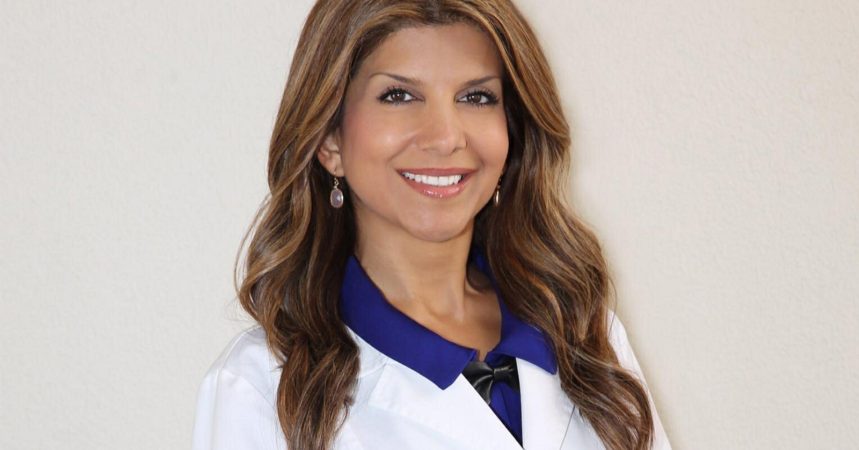We had the pleasure of catching up with plant-based MD Dr. Angie Sadeghi.
Dr. Angie Sadeghi attended medical school at Ross University School of Medicine. She completed her medical residency and fellowship at the University of Southern California Medical Center and her internship at the Cleveland Clinic. Dr. Angie is a board-certified gastroenterologist who specializes in the treatment of digestive issues and illnesses of the stomach, liver, esophagus, and colon. She is the president and CEO of the Institute of Plant-Based Medicine (IOPBM) based in Newport, California. She practices alongside an interdisciplinary team providing an integrated approach to healthy living. As a practicing gastroenterologist and WFPB diet advocate, she talks to us about the medical school curriculum, supplements for gut health, and her plant-based medical practice.

Courtesy of Dr. Angie Sadeghi
VegOut (VO): We’ve learned from other physicians that plant-based nutrition is not a common part of the medical school curriculum. What inspired you to dig deeper into veganism and wrap plant-based eating into your medical practice?
Dr. Angie Sadeghi (DAS): One must realize that medical school is jam-packed with critical information including anatomy, physiology, pharmacology, molecular biology, biochemistry, psychology, microbiology, and clinical medicine. Putting it into perspective, there is about five times more information to be learned in medical school in four years compared to what is learned in four years of [traditional] college undergrad. The time limitation has already pushed many students to the max. This information is more vital for the preparation of a medical student than nutrition teaching. In order to practice as a physician after only four years of medical school, one must learn more than [expected].
I don't believe that it should be the job of medical doctors to teach nutrition basics to their patients during a visit. I believe that registered dietitians should do that job [as] they know more about nutrition than medical doctors do because it’s their specialty and passion. I realize this could be a dilemma for patients, so at the Institute of Plant-Based Medicine, we have delegated that responsibility to the experts.
VO: As a board-certified gastroenterologist, what are your top three diet and lifestyle suggestions for promoting optimal gut health?
DAS: [Research shows] that more than 65% of patients are lactose intolerant, but in my practice, the percentage of patients who improve after [transitioning to] a dairy-free diet is much higher. Therefore, one of my first recommendations is to avoid dairy. Second, I recommend increasing dietary fiber, which promotes gut health. Third, I suggest avoiding excessive alcoholic beverages.
VO: What are your thoughts on some of the trendy products that claim to promote improved digestion and gut health, such as greens powders, celery juice, probiotics, and collagen?
DAS: In general, I am not one to promote supplements, juices, or cleanses as the panacea for gut health. There are many gimmicky words used for marketing purposes online to make a quick sale, but most of the time these products are sold without adequate medical evidence to back up their claims (e.g. liver cleanse, body detox). The real remedy is living a healthy lifestyle, which is rather simple, but not catchy enough I suppose.
VO: As the CEO and president of the Institute of Plant-Based Medicine, tell us about your practice. What services does the Newport, California-based clinic offer to clients?
DAS: We are a multispecialty, lifestyle, evidence-based, medical practice. We are proud to offer the perfect combination of lifestyle and evidence-based medicine traditionally practiced in the US. This means we integrate nutrition teachings by registered dietitians, weight loss coaching, and mental health [services] by psychiatrists and psychologists. We believe our patients enjoy receiving comprehensive care to improve their health, [both] preventing [and even reversing] disease.
VO: The media has become a saturated source of nutrition information. While there is a lot of accurate nutrition data to be found, not all of it is factual. Which wellness trends and myths would you like to see disappear and why?
DAS: The market is indeed saturated with an abundance of opinions by people who are unqualified to make health recommendations. I suggest really doing your homework before putting your trust in someone. In my humble opinion, you can trust your medical doctors (MDs and DOs), as well as registered dietitians (RDs).
For more from Dr. Angie, visit IOPBM.com and follow her on Instagram at @angie.sadeghi.













